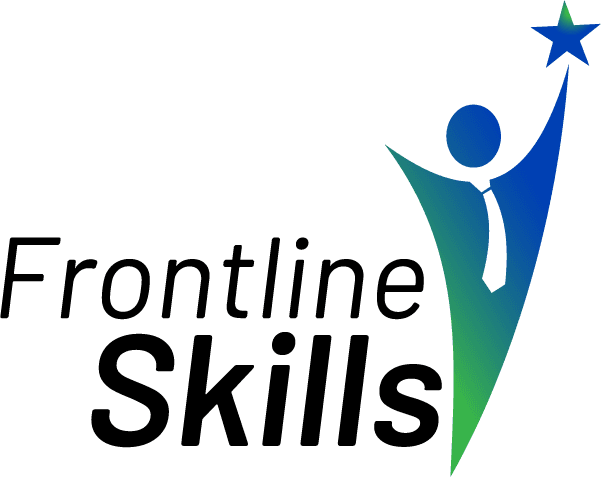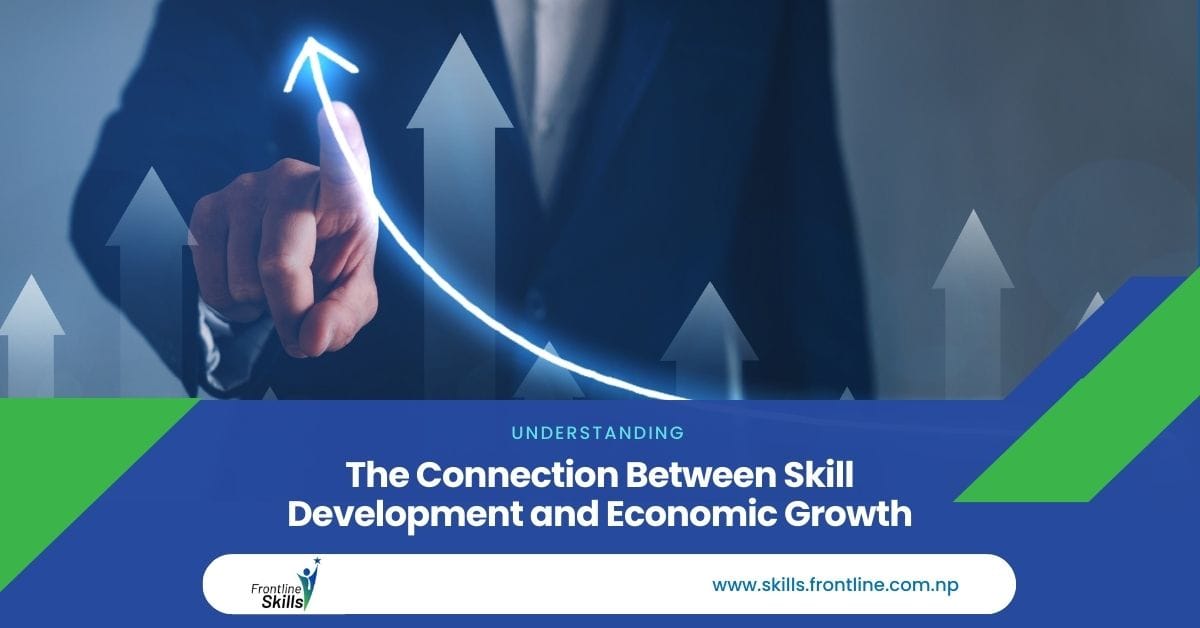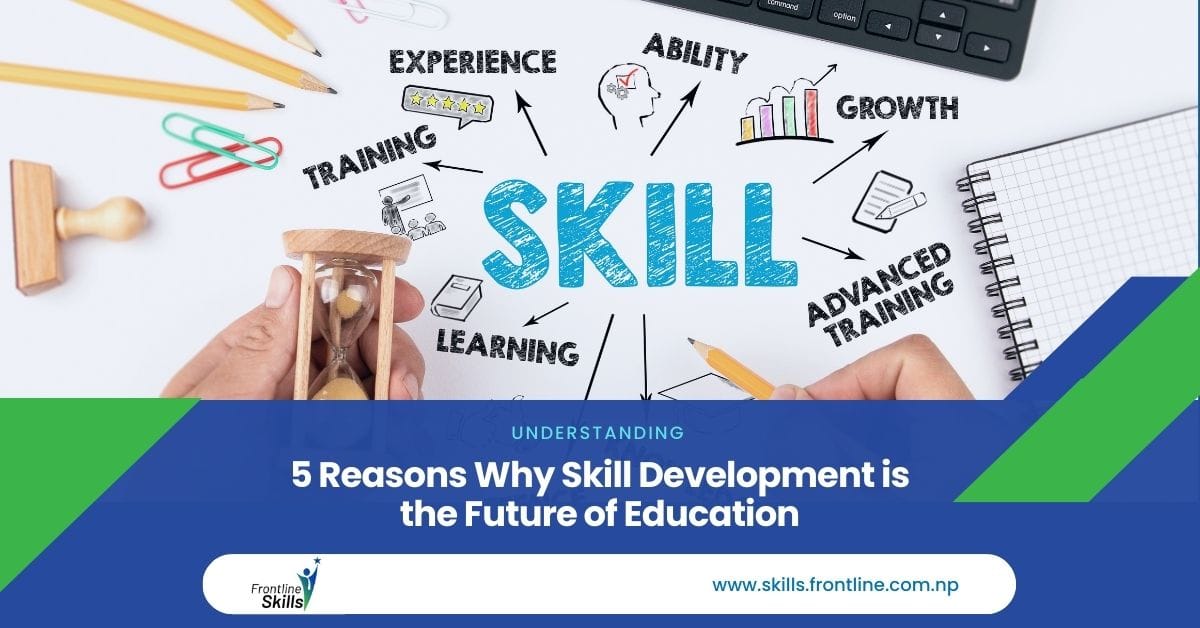Table of Contents
Introduction to Skill Development
Economic growth is a fundamental objective for every nation, and one of the most significant factors influencing this growth is skill development. As the global economy evolves, the demand for a highly skilled workforce becomes increasingly important. Countries that invest in skill development experience increased productivity, innovation, and competitiveness. In this article, we explore the intricate relationship between skill development and economic growth, emphasizing its impact on employment, productivity, technological advancement, and overall economic stability.
The Role of Skill Development in Economic Growth
1. Enhancing Workforce Productivity
A skilled workforce is the backbone of any thriving economy. Higher skill levels lead to increased efficiency and output, enabling businesses to produce goods and services at a lower cost. Skilled workers can adapt to new technologies and improve overall operational effectiveness, leading to greater economic productivity.
- Higher efficiency: Skilled employees complete tasks faster and with fewer errors.
- Innovation boost: A knowledgeable workforce contributes to research and development, fostering innovation.
- Competitive advantage: Companies with skilled employees gain an edge in global markets.
2. Reducing Unemployment and Underemployment
One of the most pressing challenges in many economies is unemployment and underemployment. Investing in skill development ensures that individuals possess the qualifications required for available jobs, bridging the gap between education and industry needs.
- Job creation: Skilled workers attract investment in high-demand industries.
- Better wages: Employees with specialized skills command higher salaries.
- Employment opportunities: Sectors such as IT, healthcare, and engineering benefit from skilled professionals.
3. Promoting Technological Advancement
As industries become increasingly reliant on technology, the demand for technically proficient workers grows. Countries that emphasize skill development in science, technology, engineering, and mathematics (STEM) fields drive technological innovation and sustain economic expansion.
- Research and development: Skilled professionals contribute to groundbreaking advancements.
- Automation efficiency: Skilled labor complements automated systems, improving productivity.
- Global competitiveness: Nations investing in STEM skills lead in technological progress.
4. Encouraging Entrepreneurship and Business Growth
Skill development fosters entrepreneurial success, which is vital for economic diversification. Entrepreneurs equipped with business, financial, and management skills contribute to job creation and economic expansion.
- Innovation-driven businesses: Startups bring new solutions to market needs.
- Economic diversification: Skill-based entrepreneurship reduces reliance on single industries.
- Self-sufficiency: Small businesses flourish, reducing dependency on multinational corporations.
Key Sectors Where Skill Development Impacts Economic Growth
1. Information Technology (IT) and Digital Skills
With the rise of the digital economy, proficiency in IT-related skills is essential. Countries that invest in IT training programs experience:
- Increased job opportunities in software development, cybersecurity, and data analysis.
- Enhanced e-commerce and digital trade expansion.
- Competitive advantages in the global digital marketplace.
2. Manufacturing and Engineering
Manufacturing remains a key driver of economic growth. Skilled workers in this sector contribute to:
- Efficient production processes.
- High-quality goods for export.
- Reduced reliance on imports, strengthening local economies.
3. Healthcare and Biotechnology
A skilled healthcare workforce improves public health, resulting in:
- Increased life expectancy and productivity.
- Growth in pharmaceutical and biotechnology industries.
- Development of new medical technologies and treatments.
4. Financial and Business Management
Business and financial literacy empower individuals and companies to:
- Make informed investment decisions.
- Manage financial risks effectively.
- Drive economic resilience and sustainable growth.
Challenges in Skill Development and Economic Growth
Despite the clear benefits, several challenges hinder effective skill development:
- Mismatched skills: Many education systems fail to equip students with industry-relevant skills.
- Limited access to training: Developing nations struggle with inadequate training facilities.
- Resistance to change: Companies may hesitate to invest in employee skill development.
- Technological disruption: Automation replaces jobs faster than new skills can be developed.
The Future of Skill Development and Economic Growth
1. Emphasis on Lifelong Learning
The rapidly changing job market necessitates continuous learning and upskilling. Employers and employees must embrace lifelong learning to remain competitive.
2. Integration of AI and Automation Skills
Artificial intelligence (AI) and automation are transforming industries. Future economic growth depends on training workers in AI, robotics, and data science.
3. Sustainability and Green Jobs
The shift towards sustainable economies creates new job opportunities in renewable energy, environmental conservation, and sustainable agriculture.
4. Global Collaboration on Skill Development
Countries must collaborate on skill-sharing programs to bridge the talent gap worldwide. International cooperation fosters knowledge exchange and strengthens global economic resilience.
Conclusion
Investing in skill development is one of the most effective strategies for economic growth. A well-trained workforce increases productivity, fosters innovation, and enhances global competitiveness. By implementing strong skill development initiatives, governments, businesses, and individuals can drive long-term economic success.
167 views



